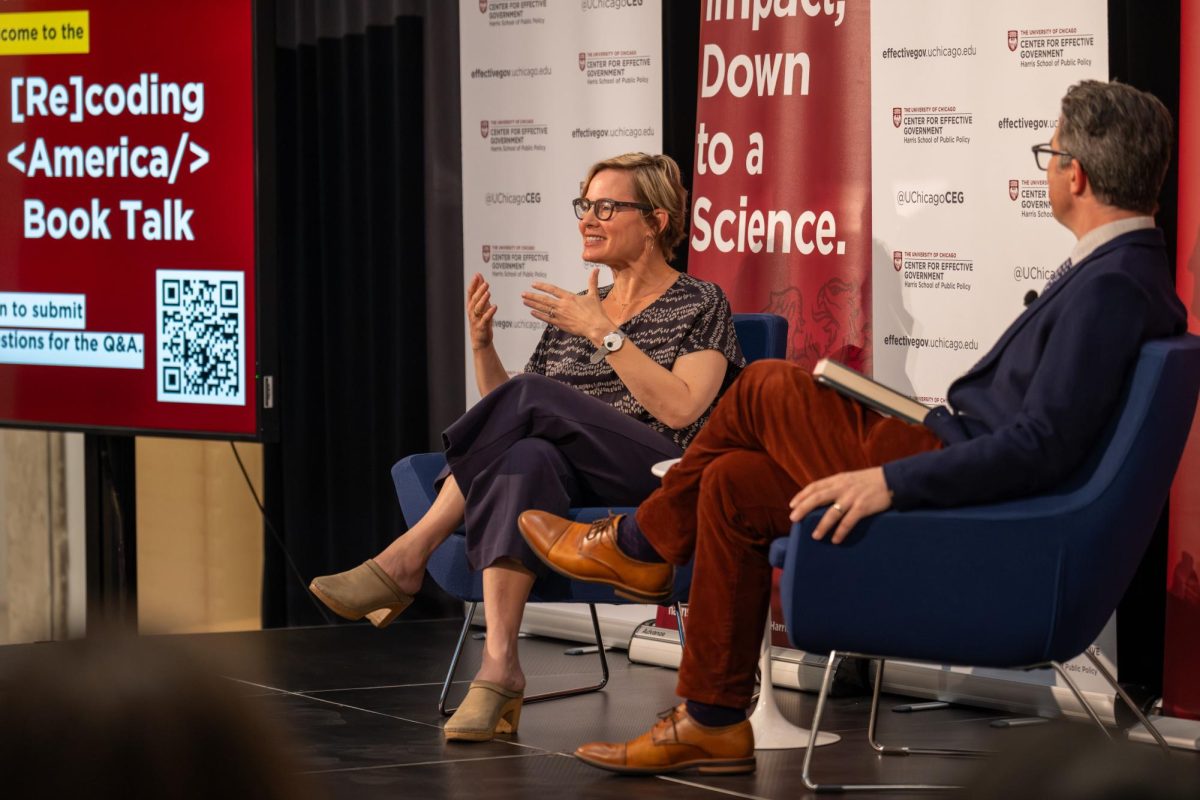[img id=”78548″ align=”alignleft”]
The directors of the U of C Human Rights Program (HRP) discussed the evolution of human rights and its relationship with illegal immigration.
Susan Gzesh, one of HRP’s directors, touched on the theme of the Humanities Festival, “The Body.” She gave the example of how when a human body crosses a state border, it changes from being a citizen with rights to an alien devoid of rights.
“The body, by crossing the border, may become vulnerable by being a non-citizen, but it should not lose its human rights,” Gzesh said.
Gzesh said that even though there are many legal protections for illegal immigrants in the United States, they lack economic, social, and cultural rights. But treating the problem will mean going to the source, Gzesh said, because “migration doesn’t begin at our borders.”
She used an analogy of a village situated downstream of a river. One day, the people in the village see an abandoned baby in the river. They rescue the baby. The next day, they see two babies in the river and rescue both. The third day, they see more babies in the river, and finally someone suggests that they should go upstream to find out where the babies are coming from.
The problem hit home when an audience member told her story to the hushed crowd.
The woman said she has been stuck in the U.S. for 16 years because she immigrated illegally as a child. She has a Ph.D. in economics but she cannot work here. She can return to her home country, but she cannot bring her child with her. At the lecture, she wanted to know how she can exercise her “right to live.”
HRP’s other director, Michael Geyer, posed the problem of justifying human rights as being particular to humans, and why. “Even if we agree that human rights exist as rights for every human, what difference does it make?” Geyer said.
Noting the many international groups and conventions intended to promote and protect human rights, he reasoned that human rights are particular to humans because humans can feel pain and recognize it in others, have the capacity to do good and evil, and are accountable for their actions.
Furthermore, crimes against humanity are considered crimes against all mankind because “Everybody, directly or indirectly, is affected by the breach,” Geyer said.
“I feel both enlightened and overwhelmed,” said Sharon Eiseman (M.A. ’64), a lawyer who in her spare time advocates for women’s rights. She said the lecture broadened her view on how to frame questions of inequality.
Another attendee, Noel Hertz, said the lecture was a step toward addressing these issues. “Getting the question formulated is the most important part of addressing the question,” he said.









